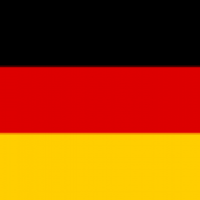Summary:
A European consortium led by an University of Applied Sciences in southern Germany is applying for the Horizon Europe call CIRCBIO-02-two-stage. A partner for the up scaling of poly(limonene)carbonate PLimC is sought. Shortly explained: Synthesis of PLimC on the basis of limonene and carbon dioxide. The PLimC should act as a sustainable alternative to conventional bisphenol-a-polycarbonates. The partner should be able to produce PLimC (about 100 kg). A research cooperation agreement is foreseen.
Description:
Limonene, a compound that is produced from oranges as a by-product of the orange juicing process and which can furthermore be extracted from the peel of many citrus fruits, has attracted great interest among researchers. More than 50 wt% of fresh oranges end up as peels and other forms of waste during orange juice production and are currently used as biomass for fertilizers or for animal feed. The global orange production is about 70 Mt/a, of which around 70 t/a limonene are extracted. Dry orange peel waste contains 3.8 wt% of d-limonene, which is up to now mostly used in food and cosmetic industries. However, this orange peel waste is also an ideal feedstock for the production of sustainable polymers and extremely environmentally friendly. So, d-limonene is an innovative green chemical for a wide variety of uses. The oxidation product, limonene oxide (LO), can be copolymerized with the greenhouse gas CO2 to obtain fully biobased poly(limonene)carbonate (PLimC).
The already existing consortium consists of 8 partners: 4 Germany (2 companies, 2 universities), 1 Italy (university), 1 Spain (university), 1 North Macedonia (university) and 1 Turkey (company). This covers the areas of extraction of d-limonene, synthesis of PLimC and modifications (laboratory), characterization, process optimization, investigation of end-of-life options and the production of a prototype. The part of the up-scaling (about 100 kg PLimC) is missing .
The topic of the call is: "Sustainable biodegradable novel bio-based plastics: innovation for sustainability and end-of-life options of plastics". It is a two-stage proposal and until 15.02.2022 a short proposal (10 pages) should be submitted. If this is positively assessed, the deadline 01.09.2022 applies for the full proposal (45 pages). The maximum budget is 6.000.000 €. It is an inovation action topic and at the end of the project TRL 7-8 should be reached (running time: 4 years). The expected outcomes are: New sustainable bio-based, environmentally friendly, and biodegradable plastics to foster European industrial sustainability, competitiveness, and resource independence, by lowering the environmental footprint and enabling climate-neutrality and higher resource efficiency along value chains.
For this project, a research cooperation agreement is foreseen.
Type (e.g. company, R&D institution…), field of industry and Role of Partner Sought:
An industrial partner is needed. The industrial partner should ideally be active in the field of "polymerization with CO2" to realize the up scaling of poly(limonene)carbonate. The up-scaling would involve the synthesis of the catalyst, oxidation of d-limonene to limonene oxide and copolymerization of limonene oxide with carbon dioxide to poly(limonene carbonate). For the last step it is necessary to have a high pressure reactor (should withstand 5-10 bar). The synthesis of PLimC is well known and published. In the labratory, PLimC has already been scaled up to 1.2 kg.
At the end of the project TRL 7-8 should be reached. So, a prototype has to be produced and for this purpose an up scaling to about 100 kg should be possible with this partner.
There will be one work package (Up-scaling of PLimC) for which the partner will be responsible.
The partnership considered is a research cooperation agreement.
Stage of Development:
Proposal under development
External code:
RDDE20211207001








